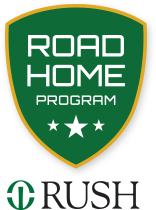September is National Suicide Prevention Month, which offers an opportunity for Veterans, service members, and their loved ones to check in on one another. Unfortunately, suicide is the second leading cause of death for post-9/11 Veterans and a recent annual report published in 2021 by the Wounded Warrior Project (WWP) found that nearly 1 in 4 warriors had thoughts of suicide in the past year. Despite these common occurrences and concerns, it can be difficult to know when and how to approach a conversation about suicide or reach out for help. Here is what you can do to help yourself or a loved one who may be struggling with thoughts of suicide.
Be aware of risk factors
There are many risk factors that may impact thoughts of suicide. These can include:
- Increased life stress, a major life change (good or bad), or a recent tragedy or loss
- Financial problems
- Serious or chronic medical condition, illness, or pain
- Mental health conditions such as PTSD or Depression
- Sleep problems such as insomnia or nightmares
- Substance misuse
Though these risk factors do not cause suicidal behaviors, they may increase how often suicide-related thoughts come up and the intensity of these thoughts.
Signs and symptoms
The warning signs of suicide appear different for each individual, but some common signs are isolation from friends and family, as well as withdrawing from usual or enjoyable activities. They may express feelings of hopelessness about their life or current stressors, or feelings of being a burden or of having no purpose. They may also share signs of emotional distress or feelings of crisis in person or on social media. Sometimes people use vague or coded language to hint at their distress, such as “I just want to be done” or “Nothing I do matters”. These statements can take many forms and may even be casually or jokingly stated, but by using these phrases as prompts to start a conversation we may be able to connect people having thoughts of suicide to the resources and support they need.
Have the conversation
People experiencing thoughts of suicide may want to solve the problem on their own or have fears of being seen as weak, which can hold them back from seeking out help. Additionally, concerned loved ones may hesitate to ask about suicidal thoughts because it is uncomfortable, or because they are worried that talking about these thoughts will make the person act on them. However, despite being uncomfortable, these conversations can be lifesaving. Asking the person you’re concerned about if they’re having thoughts of suicide will not put the idea into their heads or increase their risk of harming themselves. In fact, the person having thoughts of suicide may be relieved to have a chance to talk about their feelings and talking may also help them feel less alone. If you are ready to start this conversation but are unsure how, there are toolkits and guides available to help find the words to have a conversation about mental health.
Take action
Engaging in mental health care can decrease the frequency and intensity of suicidal thoughts.
If you or your loved one are in need of immediate, confidential support: contact the Veterans Crisis Line via phone (dial 988, then press 1), chat, or text (text 838255). This crisis line is available to Veterans and their concerned friends and family members – regardless of whether there is an immediate threat of suicide or harm to others.
Additionally, the Road Home Program provides quality, evidence-based clinical care that can provide mental health support and help reduce distress that may be contributing to thoughts of suicide. If you recognize that you or a loved one needs help, call Road Home at (312) 942-8387 and we can connect you with help today!
Chelsea Shotwell Tabke, PhD
Clinical Psychologist
The Road Home Program: The National Center of Excellence for Veterans and Their Families at Rush
The Road Home Program, a member of the Warrior Care Network, provides mental health care and wellness to veterans of all eras, service members, and their families at no cost and regardless of discharge status. If you or a loved one needs help, call us at (312) 942-8387 (VETS) or fill out the Get Care form.

